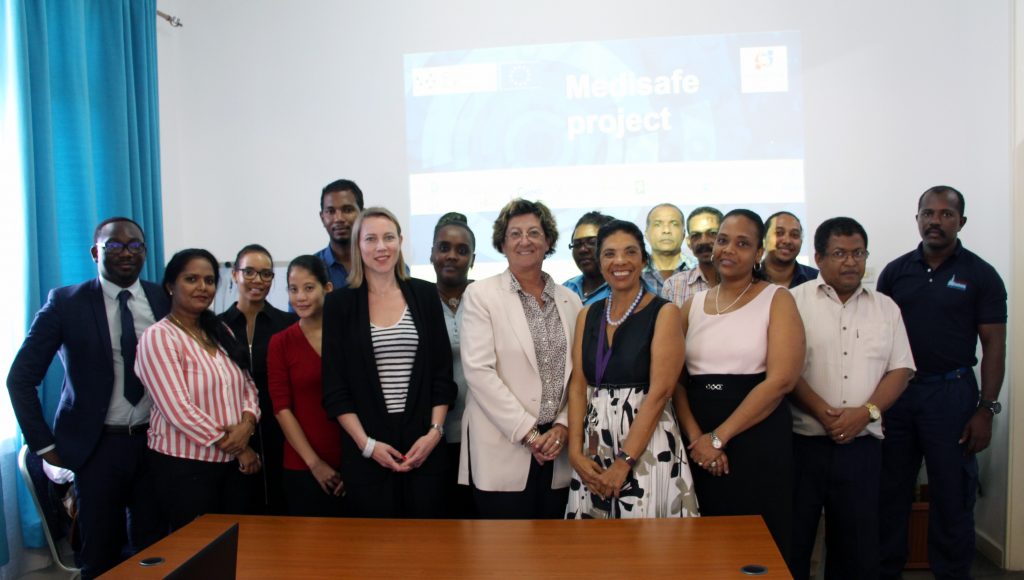10 April 2019
Fight against falsified medicines – the MEDISAFE project in Seychelles
Event
10 April 2019

French experts in the fight against falsified medicines went to Seychelles at the beginning of April for a first mission as part of the MEDISAFE project.
The production, trafficking and consumption of falsified medicinal products constitute a threat to public health and safety. WHO defines falsified medicines as medical products whose identity, composition or source are misrepresented, whether deliberately or fraudulently. This trafficking poses obvious health risks to the patients who consume them and also contributes to the flow and networks of organized crime. Although no country is protected from this threat, the impact is particularly significant in developing countries where falsified medicines are used to treat life-threatening diseases such as malaria, tuberculosis and HIV/AIDS. According to WHO, in some parts of Africa, Asia and Latin America, falsified medicines account for up to 60% of the medicines in circulation.
The European Union, through the Centres of Excellence for Chemical, Biological and Radiological and Nuclear Risk Reduction Initiative (or EU CBR EC) (http://www.cbrn-coe.eu/), is addressing the problem of falsified medicines.
MEDISAFE is part of this initiative and is implemented in 11 countries in East and Central Africa on a voluntary basis. The Government of Seychelles is participating in the project, as falsified medicines are a major public health problem given the serious damage they can cause to the population.
Expertise France, the French public agency for international technical assistance, is in charge of leading a European consortium dedicated to the implementation of this project.
This first fact-finding mission was organized from 1 to 4 April to Victoria by Mr Daniel Cetoupe, National Focal Point, and conducted under the direction of Ms Lucile De Comarmond, Chief Pharmacist, with the support of Ms Dhana, Director of the Seychelles Quality Control Laboratory, and Mr Ned Camille.
The mission was composed of a team of French experts, led by Drs Hélène Degui, pharmacist, Karl Hounmenou and Jerôme Schmidt, pharmacists specializing in the inspection and quality control of medicines and Amélie Robine, a lawyer specializing in this field.
The team carried out field visits. Workshops have also provided international experts with a better understanding of the specific problems of counterfeit medicines in Seychelles.
The project will contribute to the fight against organized crime and improve health outcomes through two strategies:
This mission was successful thanks to the strong involvement of public and private sector pharmacists, the health information service, representatives of the Customs Division, the Police Department and lawyers from the Attorney General’s Office.
The group made recommendations on activities to be implemented over the next two years to improve awareness and national response to trafficking. All participants are committed to ensuring that the people of Seychelles have access to quality, affordable and controlled medicines.
Article distributed by APO Group for the French Embassy in Victoria, Seychelles, and published on the Africa News website.